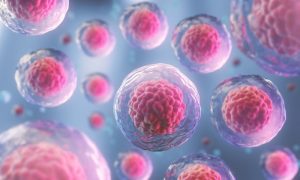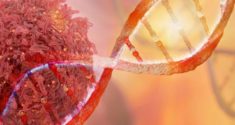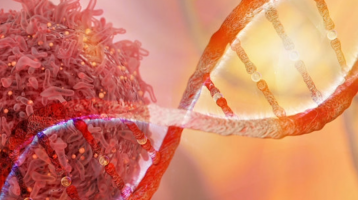How effective medication is depends on various factors, including the time of day at which it is administered. And why? Because our body does not always function in exactly the same way. Instead, it follows the cycle of its internal clock, the so-called circadian rhythm. However, as this rhythm is different for every person and depends on a number of different factors, it is difficult to adjust the medication intake to the patient’s individual body clock. Researchers at Charité – Universitätsmedizin Berlin have now developed a method to determine the optimal timing of cancer treatment based on specific breast cancer cell lines. They describe their approach in the journal Nature Communications.
The human internal clock determines the rhythm of many different bodily functions and metabolic processes, such as sleep and digestion. But it is not only the organs that are more or less active depending on the time of day. The individual cells also follow a cycle that is determined by the human body clock, so that they react differently to external influences at different times of the day. This is of great importance for chemotherapy in the treatment of cancer. Previous studies have shown that chemotherapy is most effective when the tumor cells are dividing. However, this finding has hardly been used in clinical treatment to date. An interdisciplinary team at Charité led by Dr. Adrián Enrique Granada from the Charité Comprehensive Cancer Center (CCCC) set out to close this gap. The team set out to find the optimal time to administer drugs based on the individual circadian rhythms of the tumors.
Example of Triple Negative Breast Cancer

In this way, the researchers identified specific times of day when the cancer cells respond best to drug treatments. For example, it was found that the chemotherapeutic agent 5-fluorouracil (5-FU) is most effective against a certain cancer cell line between eight and ten o’clock in the morning. As the study also shows, certain cellular and genetic factors are decisive. The scientists were even able to determine which genes are decisive for the circadian effect of certain drugs. “We call them ‘core clock genes’. According to Granada, they have a significant influence on how well cancer cells respond to treatments administered at different times of the day.
Profiles Show How Cancer Cell Types Respond to Drugs
This approach can be used to create detailed profiles that show how different types of cancer cells respond to different drugs at different times. According to the researchers, this can help to determine the most effective drug combinations. Overall, these results suggest that personalized treatment plans based on individual circadian rhythms could significantly improve the effectiveness of cancer treatment. In addition, undesirable side effects could also be reduced.
In order for these findings to be incorporated into clinical practice soon, the results need to be validated in studies with larger patient groups. The researchers also plan to investigate the molecular mechanisms behind the circadian influences on drug sensitivity in order to further optimize treatment times and identify new therapeutic targets.







